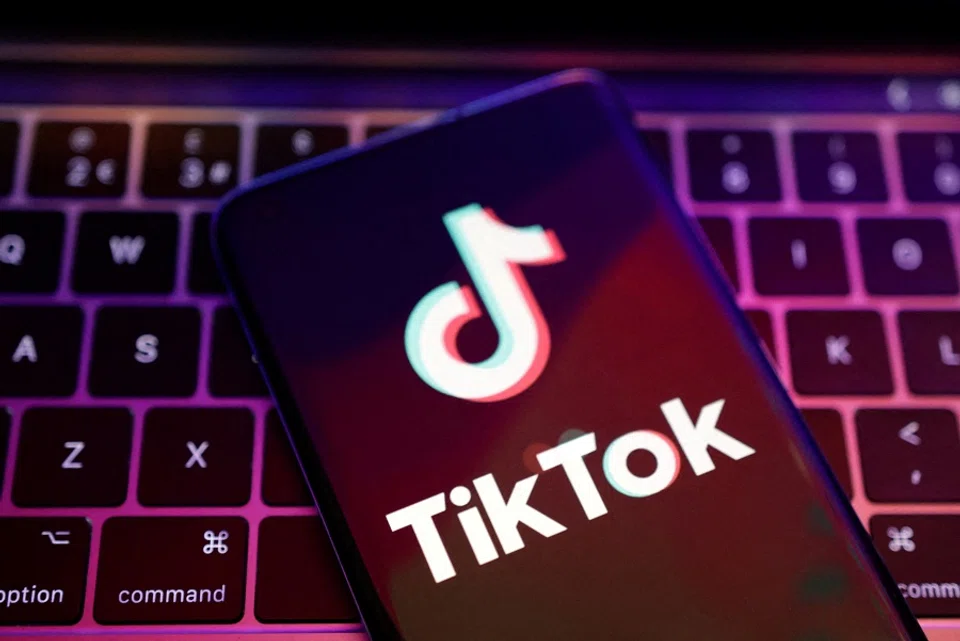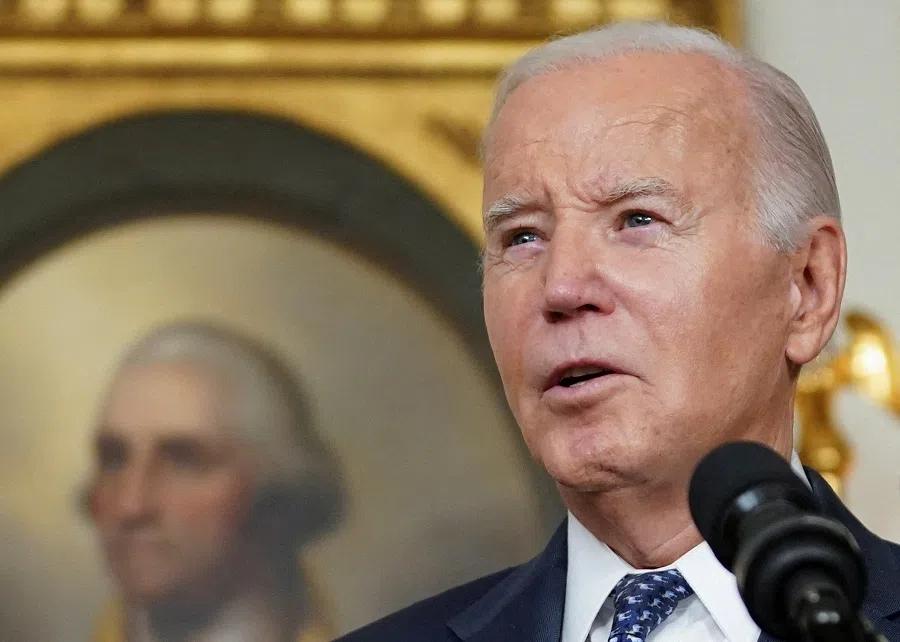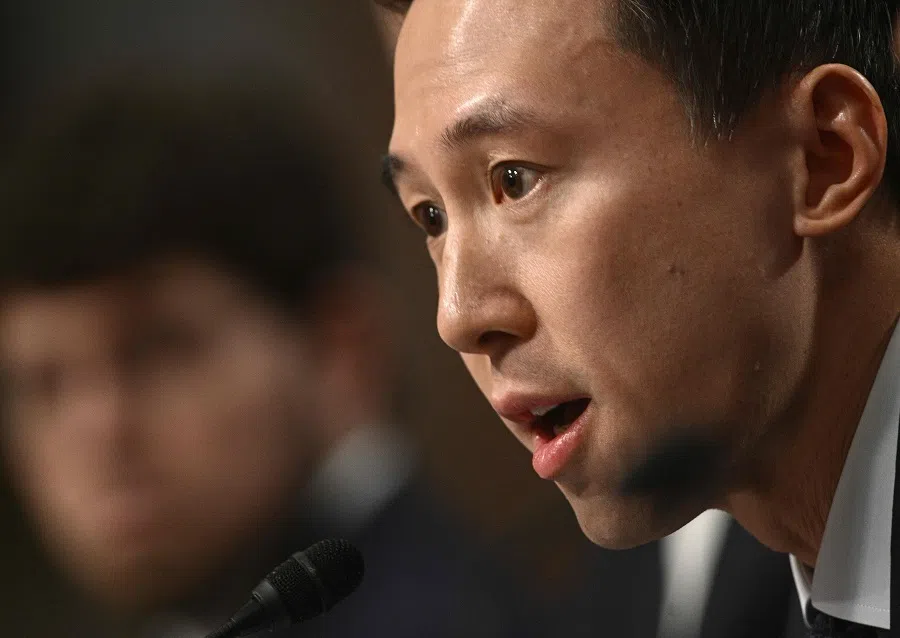Will TikTok survive the latest attack from the US?
Lianhe Zaobao correspondent Yu Zeyuan notes that the US's latest moves against TikTok are getting a response from TikTok as well as its users. Will TikTok survive the latest onslaught and will the Chinese government back the company?

Just as China was in the thick of convening the Two Sessions, the US once again made moves towards TikTok. This time, the US Congress got involved, with US President Joe Biden declaring on 9 March that if the US Congress were to pass the bill to effectively ban TikTok, he would sign it into law.
This bill came somewhat abruptly. On 5 March, 19 US legislators introduced a bipartisan bill titled Protecting Americans from Foreign Adversary Controlled Applications Act, which includes requesting that ByteDance divest TikTok (direct or indirect ownership of shares to be less than 1%, with no control over TikTok) within 165 days, or it would forbid US applications stores and web hosting services from making TikTok available - effectively meaning that the app would be removed from the Apple and Google app stores, among others.
Unlike prior calls from the US to ban TikTok, this bill was put up without public fanfare; clearly, the proposers of the bill wanted to catch TikTok off guard with such a move.
Once that happens, ByteDance would either have to sell TikTok, or close down TikTok's operations in the US. Once TikTok is no longer operational in the US, it would not be hard to predict its fate in other Western countries as well.
TikTok's response
TikTok also sensed the unfriendly vibes behind this proposed ban, and did not adopt a passive approach as it did previously. On 7 March, TikTok delivered a pop-up notification to its 170 million users in the US, urging them to call the congressional representatives of their areas and ask that the bill against TikTok be withdrawn.
But a few hours after the notification was sent, the US House Energy and Commerce Committee voted 50-0 unanimously in favour of the divestment bill. The US House of Representatives is set to review the bill this week, and once it passes it would need to be sent to the Senate for amendment and voting. If the bill passes both the House and the Senate, it could likely be enacted into law by the Biden administration.

Once that happens, ByteDance would either have to sell TikTok, or close down TikTok's operations in the US. Once TikTok is no longer operational in the US, it would not be hard to predict its fate in other Western countries as well.
The European Union (EU) launched a formal investigation of TikTok on 19 February, to assess if TikTok has breached the EU's Digital Services Act in terms of protecting minors, ad transparency, research data and interviews, as well as addictive design and risk management of harmful content and so forth.
TikTok is still unable to shake off the label of being a "Chinese firm", and US politicians have persistently sought to hammer the final nail in the coffin.
In the past few years, amid its popularity in the US, TikTok has often been lambasted by politicians and competitors in the US. This move by the US Congress can be considered the most severe punishment imposed on TikTok in the US.
In fact, in order to reduce criticism from US politicians, TikTok has been trying hard for the past few years to "de-sinicise", including storing all US user data in the US out of reach of Chinese law, stopping the use of China-based moderators to monitor overseas content and transfer them out of China, as well as shoring up all security loopholes and letting a US-based security team manage data access and so forth.
Yet TikTok is still unable to shake off the label of being a "Chinese firm", and US politicians have persistently sought to hammer the final nail in the coffin.
Effects on users
This is why TikTok's retaliation this time around is also unprecedented. It declared to its users that the US Congress is planning a total ban of TikTok. Hence, the people have to voice out now before the government strips 170 million Americans of their constitutional right to free expression.
TikTok added that this would damage millions of businesses, destroy the livelihoods of countless creators across the US, and deny artists an audience. It urged its users to call their congressional representatives, saying: "Let Congress know what TikTok means to you and tell them to vote NO."
The US's revived attempts to ban TikTok will also add new obstacles to the China-US detente, plunging both parties into an inevitable tug of war over the issue.

TikTok's call to action indeed worked, with many lawmakers' phones being flooded by TikTok users. CNN quoted a congressional staffer as saying that they had to unplug the phones to resume normal work.
It is difficult to say if TikTok's push to have its users call their lawmakers will stop the US House and Senate from passing the relevant bill. Against the backdrop of a long-standing consensus between the Democrats and Republicans on suppressing China, flooding the phones of the lawmakers could become new evidence for US politicians to accuse China of interfering in the internal affairs of the US, and prompt the congressmen to be even more united in their efforts to pass the bill. To most US congressmen, it is politically correct to suppress China, and other factors are not that important.
The US's revived attempts to ban TikTok will also add new obstacles to the China-US detente, plunging both parties into an inevitable tug of war over the issue.

Chinese officials have always opposed a forced sale of TikTok and have set up an administrative threshold against any attempts to do so. After the US government ordered ByteDance to divest from its US TikTok business in August 2020, China's Ministry of Commerce and the Ministry of Science and Technology jointly issued an adjusted catalogue of technologies that are subject to export bans or restrictions, which added "personalised information push service technology based on data analysis", essentially banning ByteDance from selling TikTok's core technology.
Now, because of this, even if ByteDance wants to sell TikTok, things are not that simple. On 10 March, ByteDance denied market rumours that former CEO of US game company Activision, Bobby Kotick, had contacted ByteDance founder Zhang Yiming and offered to purchase TikTok for about US$100 billion, noting that Zhang had not discussed the issue with anyone.
... the Chinese government should adopt retaliatory measures against the US's robbery. - Chinese netizen
Negative public opinion
Chinese public opinion is enraged that the US is again demanding ByteDance to divest from its TikTok business, and thinks that US politicians are openly "robbing" TikTok.
WeChat official account "Huoxing Fangzhen" (星火方阵) posted an article on 9 March saying that if TikTok gives in, it would have to be sold, but the buyer will definitely try to purchase it at the lowest price possible, or even demand that the other party give it up for free; after all, the buyer has the advantage of a deadline that no amount of negotiation can compensate for, which makes it an open robbery. The US has raised the butcher's knife and it is useless for TikTok to reason it out or present the facts; the Chinese government should adopt retaliatory measures against the US's robbery.

Once the US's TikTok ban bill is implemented, while China may take other retaliatory measures in addition to restricting ByteDance's sale of TikTok's algorithms in accordance with the relevant regulations, it is unlikely that China will jeopardise China-US relations and China's opening up to the outside world just to support TikTok.
Although it will take some time before the entire legislative process of the relevant bill is completed, it would be difficult for ByteDance and TikTok to escape the reality of suffering damages amid China-US rivalry.
This article was first published in Lianhe Zaobao as "TikTok又悬了?".

![[Big read] Paying for pleasure: Chinese women indulge in handsome male hosts](https://cassette.sphdigital.com.sg/image/thinkchina/c2cf352c4d2ed7e9531e3525a2bd965a52dc4e85ccc026bc16515baab02389ab)


![[Big read] How UOB’s Wee Ee Cheong masters the long game](https://cassette.sphdigital.com.sg/image/thinkchina/1da0b19a41e4358790304b9f3e83f9596de84096a490ca05b36f58134ae9e8f1)
